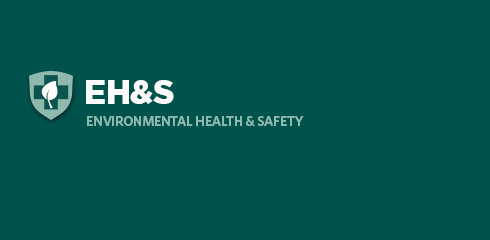Water Quality, Storm Water & Wastewater Discharge
The USGS defines water quality as the suitability of water for a particular use (e.g., human consumption) based on selected physical, chemical, and biological characteristics. Water quality is determined by a sample’s color, conductivity, level of dissolved oxygen, salinity, hardness, pH, and presence of sediment and suspended sediment or other contaminates like sewage, bacteria, nitrogen, pesticides, and other chemical pollutants. Rainwater come in contact with these contaminates and washes them in to the storm drain system. To prevent storm water pollution, the Boston Water and Sewage Commission recommends keeping drain areas clean and easy-to-spot trash and cigarette receptacles.
The Clean Water Act (CWA) of 1972 regulated by EPA establishes the basic structure for regulating discharges of pollutants into waters and regulating quality standards for surface waters.
CWA requires that schools at the Colleges of the Fenway:
- Ensure a permit is obtained from National Pollutant Discharge Elimination System (NPDES) when developing more than one acre of land;
- Develop a Spill Prevention Control and Countermeasures (SPCC) program if required to do so;
- Thoroughly review sewer use ordinances and ensure these restrictions are being followed by campus users;
- Confirm that all sewer discharges are within local limits;
- Determine if drains on campus flow to sanitary sewers or storm drains;
- Confirm that all hazardous material sewer discharges from laboratories are being correctly reported;
- Develop, implement, and enforce a storm water management program;
- Determine where industrial waste flows and if additional permits or controls are required; and,
- If the campus meets or exceeds the volume and operation requirements for a SPCC plan, a written SPCC plan must be developed for all potential sources of oil pollution
The Massachusetts Water Resources Authority (MWRA) maintains a list of substances allowed to be discharged to the sewer system from sink or drain disposal in extremely low concentrations. All chemical discharge violations that can result in enforcement actions must be reported to the MWRA.
Colleges must obtain a permit from the MWRA if they plan on discharging hazardous wastewater to the MWRA. Depending on the amount of wastewater, the College will apply for a Low Flow Permit or a Sewer Use Discharge Permit. Operations covered by the permit must implement a written chemicals management plan to control the discharge of regulated materials to the sewer system. The plan must:
- Ensure that regulated materials to do not spill or leak into the sewer system;
- Eliminate or minimize the disposal of regulated materials to the sewer systems so that discharge limits are not met;
- Properly handle, store, collect, and dispose of laboratory chemicals and maintain disposal manifests;
- Train employees in proper laboratory chemical usage and disposal
- Ensure that the chemical management plan is followed.



 Hot Topics
Hot Topics